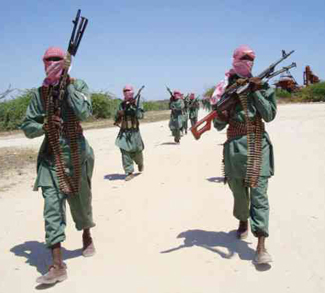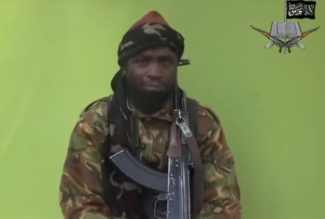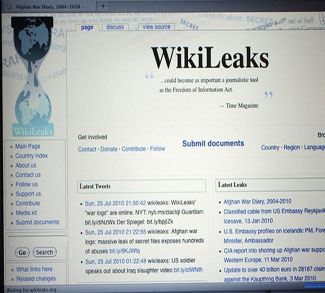New evidence of ties between Boko Haram, a Nigerian militant Islamist group, and Al Qaeda’s branch in North Africa threatens to unleash a new wave of terrorism in Nigeria and the Sahel region.
Mohammed Suleiman Ashafa, accused by the Federal Government of Nigeria of being a middleman between the group and Al Qaeda, has admitted to facilitating training of several members of Boko Haram in the Sahel. The extremist sect has perpetrated numerous attacks on civilian and international targets, including the United Nations Headquarters in Abuja.
The accused was allegedly second in command to the Resident Chief of Al-Qaeda in West Africa and transported members of Boko Haram from Nigeria to terrorist training camps in the Sahel region. Several reports have emerged testifying to the involvement of members of the Nigerian sect in Al-Qaeda in the Islamic Maghreb’s (AQIM) training camps in northern Mali.
It is not yet clear whether Ashafa’s arrest and trial is proof of the growing linkages between Boko Haram and international terrorist organizations such as Al-Qaeda and AQIM, or whether the charges are a political move of the Nigerian President Goodluck Jonathan. Certain fractions of the political opposition back one of the wings of Boko Haram as means of discrediting the current regime.
Regardless of the nature and extent of the disputed links between the Nigerian militant sect and Al-Qaeda’s global structure, Boko Haram stands to benefit from growing insecurity in the Sahel region. The porous borders combined with leadership vacuums in several North African countries will likely bolster AQIM’s power and influence as well as its capacity to provide training and support to smaller jihadist groups in the region.
Boko Haram loosely translates from Hausa, a trading language spoken in West Africa, as ‘Western education is forbidden’. The group rejects Western influences and advocates the adoption of Islamic Sharia Law (already enforced in 12 predominantly Muslim Northern States in Nigeria). The group has made no other ideological statements to elucidate its objectives or program.
Boko Haram emerged from an organization known as the Nigerian Taliban that was involved in several clashes with security forces in northeastern Yobe and Borno states in 2003. While the Nigerian Taliban numbered only a few hundred, Boko Haram has drawn a much larger membership that has been attributed to the rising unemployment in Nigeria. Most members of the group are Nigerian, but small numbers come from neighbouring Cameroon, Chad, and Niger.
The group was initially led by a young preacher, Mohammed Yusuf, who died in police custody in 2009. Although no figure has publically come forward to take over Yusuf’s leadership role, the group has increased the frequency and scale of its attacks since his death. According to Human Rights Watch, the casualties of Boko Haram’s some 194 suspected raids have totalled nearly 1,000 people since 2009. Recent campaigns have been more politically motivated than in the past, targeting moderate Muslim clerics opposed to the group and Christians living in the predominantly Muslim northern regions of Nigeria.
In the past two years, the sect has carried out several political assassinations including that of the brother of the sultan of Borno state (Abba Anas bin Umar, May 2011), a secular opposition figure (Modu Fannami Godio, killed in January 2011), and prominent clerics (Bashir Kashara, October 2010; Ibrahim Ahmad Abdullahi, March 2011; and Ibrahim Birkuti, June 2011).
In an alarming change of tactics, Boko Haram has been increasingly favouring the use of suicide bombings that have become a trademark of Al-Qaeda. The group claimed responsibility for explosions at two high profile sites in Nigeria’s capital of Abuja – the police General Headquarters in June 2011 and the UN headquarters in August of the same year. Boko Haram’s escalating sectarian agenda is exemplified by the Christmas Day 2011 bombing of a Catholic Church in Madalla, outside the capital city, the March 2012 explosion outside of a Catholic Church in Jos, and the Easter day 2012 blasts near two churches in the northern town of Kaduna.
As Boko Haram’s attacks multiply within Nigeria, its possible links with AQIM threaten to further aggravate regional security challenges. This is particularly troubling in the context of increasing instability in the general Sahel region. The politically volatile situation in Libya has already contributed to the rebellion in Mali by giving an opportunity to Tuareg soldiers, formerly employed by Muammar Gaddafi, to smuggle arms across the border to Timbuktu. AQIM appears eager to establish an alliance with the Tuareg chiefs in northern Mali. Three senior leaders from the military Islamic group are reported to have met with the heads of the nomadic rebellion in Mali on April 2nd.
The fear is that the coup in Mali will lead to a creation of a safe haven for AQIM, which has already benefited from limited government control of northern Mali as well as the southern areas of Algeria and Libya. If the AQIM succeeds in securing its group protection, it will strengthen the militant organization’s regional reach and expand its zone of influence deeper into the Sahel region and neighbouring states such as Burkina Faso and Nigeria. A more potent AQIM will be able to bolster smaller extremist groups such as Boko Haram. Information has surfaced suggesting that Boko Haram members are among the forces that now control the northern Malian town of Gao at the heart of the Tuareg revolt.
As Africa’s most populous state and third largest economy, the rise of Boko Haram jeopardises Nigeria’s fragile ethnic relations and economic prosperity. Nigeria has been invited to participate in the security sessions of the Joint Military Staff Committee of the Sahel Region (CEMOC), which brings together the governments of Algeria, Mali, Mauritania and Niger. However, it is not clear how this forum will tackle the new challenges posed by smaller groups such as the Boko Haram in the context of the growing regional terrorist threat of AQIM.
A unified regional approach to insecurity in the Sahel is urgently needed. Counterterrorist initiatives such as the CEMOC have not yet proven effective. In fact, they have often been exacerbated by regional rivalries. For instance, historical animosities and the competition for leadership in the Maghreb between Algeria, Morocco, and Libya are the reasons behind CEMOC’s exclusion of the two latter states. Such squabbles must be put aside in order for successful strategies to combat AQIM’s presence in the Sahel and its control of numerous underground economic networks.
Existing institutions such as the African Union, the Economic Community of West African States, and the Arab League, have the potential to become robust fora for tackling the political, economic, and social facets of Sahel’s security challenges. Moreover, policies centred on poverty alleviation and good governance will be essential building blocks to sustainably secure the Sahel.




